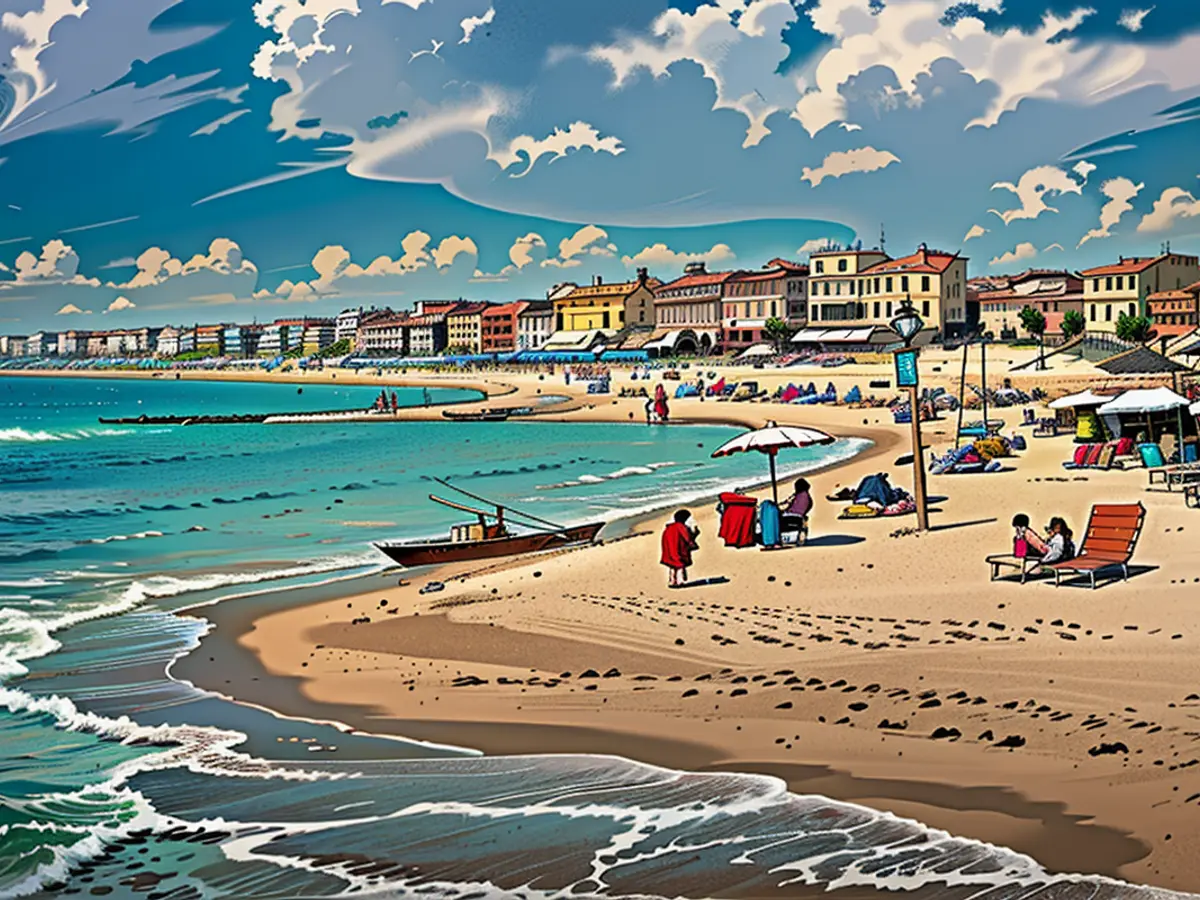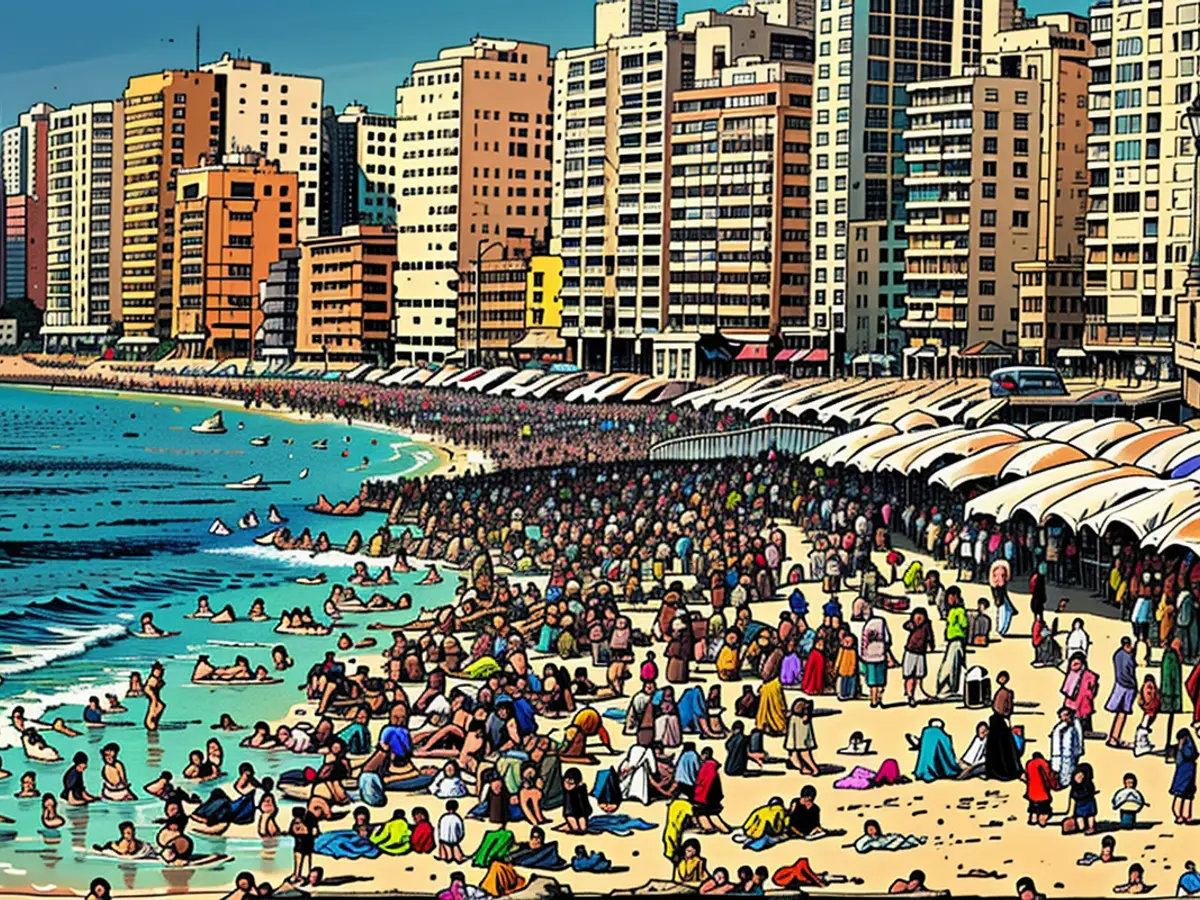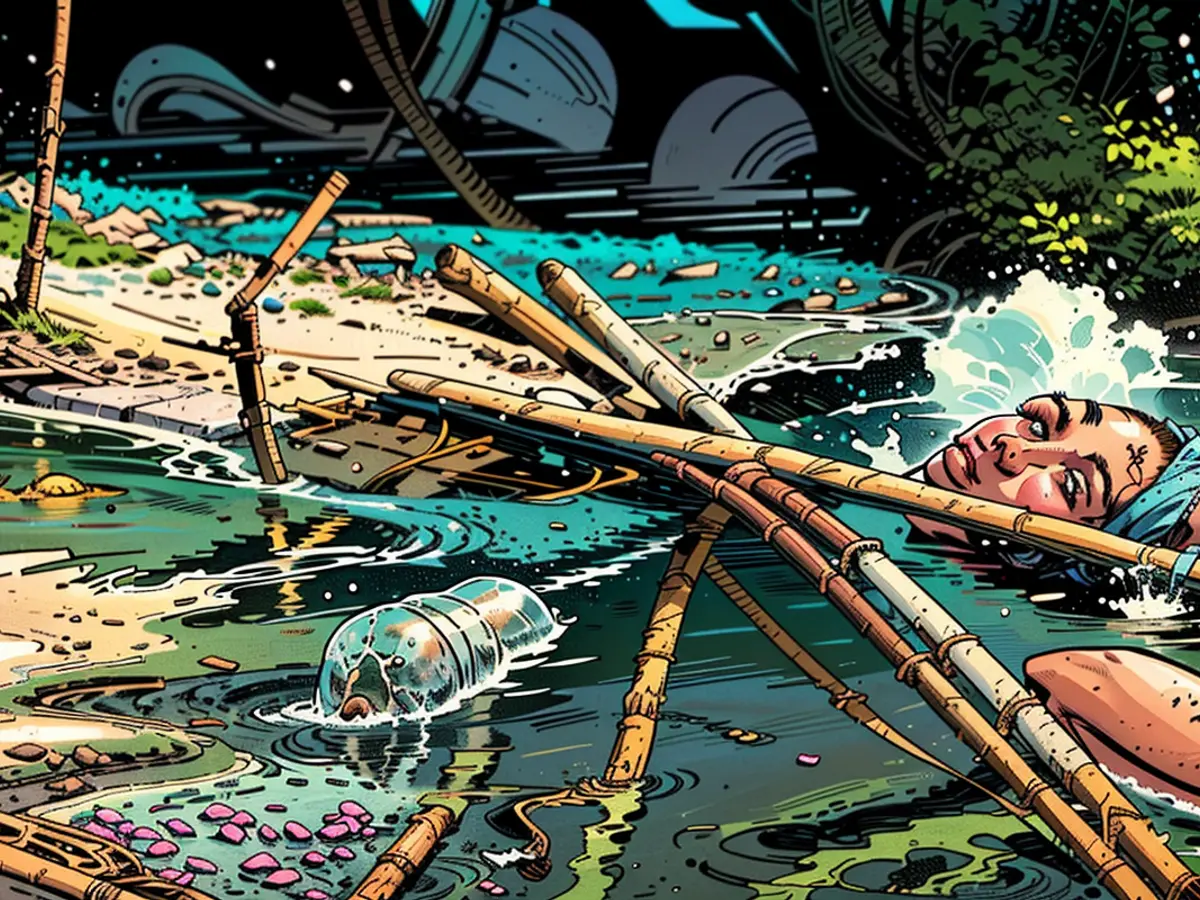Why your Mediterranean beach vacation might be bad for your health
More than 87% of the Mediterranean Sea, which extends from the Atlantic Ocean to Africa, Europe and Asia, is polluted with microplastics and other pollutants including toxic metals and industrial chemicals, according to a July 2024 report by the World Wide Fund for Nature (WWF).
Globally, water pollution is tied to 1.4 million premature deaths, which spells trouble for the 150 million people who live along the Mediterranean coastline, and the 270 million tourists who are drawn to these waters every single year.
The Mediterranean Sea laps up against 46,000 kilometers (nearly 29,000 miles) of coastline in 22 countries, many with different environmental standards and practices.
Egypt, which contributes 0.25 million tons of plastic that ends up in the Mediterranean, is the worst offender, the group says, followed by Turkey, which contributes 0.11 million tons and Italy, which contributes 0.04 million tons of plastic to the polluted sea – all part of the 1.9 million plastic fragments per square meter.
Medical experts consulted for the WWF report say that humans can ingest microplastics from aquatic environments through the consumption of marine organisms and through water (both drinking and bottled).
“Over 840 microplastics can be ingested per year from the consumption of three main commercial fish species (sea bass and two types of mackerel), [and] up to 11 thousand from the high consumption of bivalves (e.g. mussels, clams etc.),” the report states, noting that less contamination comes from eating shrimp.
“If we also count the exposure from air and food not coming from aquatic environments we can ingest over 100 thousand microplastics every day.”
Turning the tide

At the seaside town of Ostia near Rome, Pierluigi Capozzi scans the sea from his restaurant, Mediterraneo. “Maybe 50 years ago, people didn’t know what we know now about pollution and plastic,” he tells CNN. “But I see young people without any problems throw plastic bottles into the sea, throw rubbish on the ground, cigarettes, garbage.”
But he does see a bright spot. A decade ago, every morning the sand outside his beachfront restaurant was covered with chemicals from the cargo ships that traverse the shipping lanes visible from the coastline. “Thanks to better regulation, that chemical pollution is gone now,” he says.
The Mediterranean is one of the world’s major reservoirs of marine and coastal diversity, according to the Med Sea Alliance, which works to advocate for the fishing industry through better practices.
They say that the heavy pollution is negatively impacting the sea’s rich flora and fauna. Despite only covering 0.7 percent of the world’s ocean area, the sea has 7.5 percent of the world’s marine fauna, and 18 percent of the world’s marine flora.
Fishing is a €4.6 billion industry in the Mediterranean, and water pollution has greatly impacted the livelihood of the 180,000 people who rely on fishing for their livelihoods, says the WWF.
The UN’s Environmental Program says sea catches in the Mediterranean have fallen by 34% in the last 50 years, due to both over-fishing and plastics in the water.
“Around 730 tonnes of plastic waste end up daily in the Mediterranean Sea,” the group says. “Plastic waste represents 95 to 100% of marine floating waste and 50% of litter on sea beds. In tonnage, plastic could outweigh fish stocks.”
Impact on marine life

A 2023 study by the Archipelago Institute of Marine Conservation in Greece examined 25 marine animals including eight dolphins, two monk seals and 15 sea turtles and found microplastic pollutants in all of them. “In particular, among other types of plastic, a total of 10,639 microplastic fibers were detected in the gastrointestinal tract of the dead marine mammals and turtles.”
Raffaele Marfella, a professor of advanced science at the Vanvitelli University in Naples, says plastic pollution is an urgent global problem that goes beyond harm to the environment.
Citing a recent article in the New England Journal of Medicine, he highlights the link between microplastics and nanoplastics known as MNPs and certain cardiovascular diseases. “Current knowledge suggests that MNPs can enter the bloodstream through ingestion or inhalation, triggering inflammation and oxidative stress. Over time, chronic exposure to MNPs can accelerate the progression of atherosclerosis and increase the likelihood of cardiovascular events.”
Plastic pollution is considered a “forever” pollutant, meaning once it becomes invasive, it is there to stay.
Beach-goer Francesco Pacelli told CNN that it breaks his heart when he sees people leaving their garbage and bottles on the water’s edge.
“It is so important to keep a beach clean, the water it is more beautiful,” he says. “In my opinion it is very important, especially for fish, animals with all the plastic that floats around.”
If humans don’t do their part to stop the scourge of water pollution, the dream Mediterranean vacation could soon turn into a nightmare.
The increasing awareness about the environmental impact of plastic waste has led to initiatives promoting sustainable travel options along the Mediterranean coastline, encouraging tourists to choose eco-friendly accommodations and activities.
Given the health risks associated with microplastics, many travelers are now considering destinations with cleaner waters, supporting marine conservation efforts through their vacation choices.
Read also:
- Fear of escalation in the Middle East: US Secretary of State Blinken travels to the region again
- Government circles: US Secretary of State Blinken to travel to Middle East again
- Bridging days 2024: How you can double your vacation this year
- Germany has wanderlust: how tour operators and airlines are looking ahead to the next travel year








